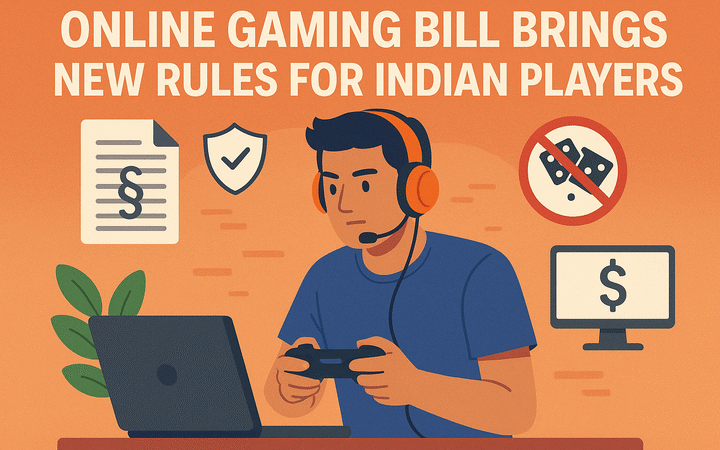The government’s new Online Gaming Bill has set out fresh regulations for internet-based games, especially those involving real money. With online gaming booming across the country, the bill seeks to curb illegal activities, protect players, and address rising concerns over safety and mental health.
Is It Illegal to Play for Money?
The bill distinguishes between games of skill and games of chance. While skill-based platforms may operate with licenses, games of chance that involve betting or wagering remain illegal. Players participating in unlicensed betting games could face legal consequences.
Punishments Under the Bill
Authorities have specified that violators could face penalties, including fines ranging from a few thousand to several lakh rupees. Repeat offenders may even risk imprisonment, depending on the severity of the violation and state-specific laws.
Impact on Users
For everyday players, the bill introduces strict Know Your Customer (KYC) checks, spending limits, and tighter withdrawal rules. Underage access is being restricted through mandatory ID verification, and companies must clearly display risk warnings.
What Happens to Wallet Balances?
Users holding money in online gaming app wallets are advised to withdraw funds from platforms that fail to comply with new licensing rules. Regulators have warned that unlicensed operators may face shutdown, leaving wallet balances at risk.
User Safety at the Core
The bill mandates stronger cybersecurity protocols, anti-cheating measures, and grievance redressal systems. Companies must ensure user data is protected and report suspicious activity to regulators, aiming to reduce fraud and scams.
Summary
With the Online Gaming Bill, India is taking a firmer stance on regulating the booming industry. While the move is expected to protect users and reduce illegal betting, it also puts responsibility on both companies and players to comply with the law and maintain safe, responsible gaming habits.
